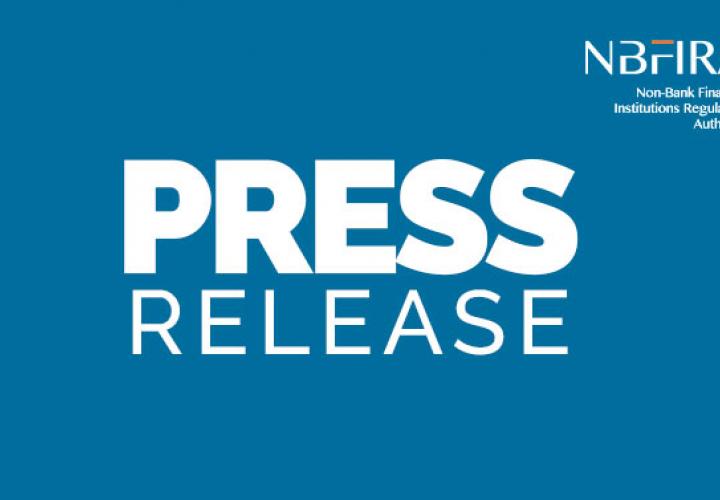NBFIRA Publishes the 2020/21 Research Bulletin: The Non-Bank Lending Market
NBFIRA 1/9/6 – I (4) May 6, 2021
Press Release
NBFIRA Publishes the 2020/21 Research Bulletin: The Non-Bank Lending Market
The Non-Bank Financial Institutions Regulatory Authority (NBFIRA) has published its annual 2020/21 Research Bulletin, whose theme focuses on the local non-bank financial institutions (NBFIs) credit market and key developments therein. This market which consists of diverse financial services providers, offers great opportunities for the financial inclusion agenda of the country’s unbanked population. NBFIs operating in the non-bank financial sector are required to obtain a license from NBFIRA prior to commencement of operations.
The Bulletin is a platform for staff and other interested parties to share their acquired knowledge and experience on issues of regulating and supervising the non-banking financial sector. This issue provides perspectives on pertinent topics regarding the non-bank credit market even beyond NBFIRA purview, including, inter alia:
- the relevance of micro finance in supporting development of the SMMEs;
- the limitations of traditional safety nets, market forces or lending restrictions in counteracting the causes and/or consequences of severe debt distress.
- policies and practices that support the Regulatory Authority in executing the mandate to regulate non-bank financial institutions under the provisions of the NBFIRA Act (2016).
- the benefits of a tiered approach to regulation and supervision in effort to develop a conducive local micro-finance environment;
The pawnshop market has been growing as reflected by increase in the Pawnshops businesses from 13 in 2014 to 93 in 2020. They are predominantly located in urban and peri-urban areas, with 56 percent based in Gaborone. In addition, Finance and Leasing entities are also required to secure a license/exemption for their operations. This sub-sector has registered nearly a fourfold growth from 2018 to 2019. Finance and Leasing companies serve enterprises unlike microlender/pawnshops who offer primarily consumer loans.
The Regulatory Authority issues licenses to micro lending businesses while pawnshops, finance and leasing companies are allowed to operate under a letter of exemption subject to minimal supervisory requirements pending promulgation of the relevant laws. Other credit providers such as banks, savings and credit cooperative societies, retailers, etc are regulated by other regulatory authorities.
The 2020/21 Research Bulletin is available on the www.nbfira.org.bw. Suggestions/feedback are welcome.
Notes to Editor
About the Non-Bank Financial Institutions Regulatory Authority (NBFIRA)
Promulgated by an Act of Parliament in 2006, the Authority began its operations in 2008 and since then has achieved significant regulatory and supervisory milestones that have enabled the NBFI sector to grow and operate in line with international standards and best practices. The Authority oversees the NBFI sector, which in 2019 had assets worth approximately P126 billion, accounting for 54% of total assets in the local financial system. In that year, the sector comprised of just under 800 regulated entities and had a gross income of P22 billion. The Authority is governed by the NBFIRA Act (2016) which repealed the previous NBFIRA Act (2006).
For more information, please contact:
Boa M. Chombah
Head, Communications & International Affairs
Tel: +267 310 2595 / 368 6100; Email: bchombah@nbfira.org.bw







